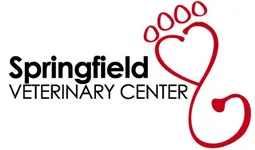
Heat Stroke
Heatstroke may kill or seriously injure your pet—but it can easily be avoided by adhering to the following tips. Never leave pets in cars on warm days. Exercise your pet during the cool part of the day. Look out for rapid breathing, loud panting or staggering; these can be signs of dehydration, heat stroke or other problems in pets. Professional help may be needed, but, in the meantime, quickly get the animal to a shady, ventilated area and sponge him or her off with cool water.
Flea Season
As a loving pet owner, you'd do anything to prevent your cat or dog from suffering. After all, they're part of the family. Yet every year when flea season begins, the suffering sets in. It's like an old broken record. Fleas bite, and the scratching and chewing starts again. It's a painful and irritating routine for you and your pet. But that's just the beginning. Adult fleas jump on your cat or dog. They bite them to feed on the blood. Then the fleas produce eggs. Eggs drop from your pet to the ground or carpet. The eggs develop over time into adult fleas. And the cycle starts all over again.
An Invisible Threat
The adult fleas on your pet can actually cause serious medical problems -- like flea allergy dermatitis or tapeworms, and in some extreme cases, anemia. Flea-related diseases account for more than 50 percent of dermatologic cases presented to veterinarians and more then 35 percent of the total small animal veterinary effort.
When to Start Treating?
Ideally, flea control should begin as flea prevention -- before flea season starts. Depending on which part of the country you live in, your flea season can last for four months or it can be a year-long problem.
Where to Turn?
If you are in the midst of flea season and still have problems with fleas, do not despair. Your veterinarian is a flea expert and can advise you on the latest new products that kill adult fleas, eggs, and larvae, and that take care of fleas in your environment. They will base their recommendation on your regional weather conditions (high humidity and heat means more fleas on the way), your pet's health and level of flea infestation.
Pets and Fireworks Don't Mix
The sound of fireworks can terrify your animal. It may run away, perhaps into traffic. A pet's ears are more sensitive than ours. Explosive noises may damage your pet's hearing, or the pet may be injured by a falling firecracker. Remember, pets and fireworks don't mix.
Don't Let Your Pet Go Back to School
When the school bell rings, don't let your pet go back to school. Many dogs and cats will naturally follow kids--or will be encouraged to tag along. Many become lost, injured, or cause a nuisance around the school yard. Keep your pet confined when children leave for school. If you drive, don't take the pets with you. Animals learn quickly and may find their own way to school later on. Brief separations during the days just before the new school year will help those children and pets that are especially close. And if your pet is missing, call the school first.
Holiday Safety for Cats
The holiday season is a time for celebration, but can also be a time of trouble for your family cat! For example, mistletoe and artificial snow are poisonous; Christmas ornament fragments can perforate the stomach; string, ribbon, and tinsel if swallowed may cause painful intestinal problems; frayed light cords cause shock or burns. Don't spoil your holiday with a medical emergency. As the winter months and holidays approach, you need to take time to ensure that your pets enjoy a happy, healthy holiday season.
Housing
It is best to keep pets indoors during the winter months, but if this is not possible, outdoor pets must be provided with shelter. Their home should be elevated off the ground to prevent moisture accumulation and have a door of some kind to keep out winter winds, sleet, and snow. Shelters should be insulated or heated. Water sources may be heated to permit constant access to unfrozen water; thermal units designed specifically for this purpose are readily available. Outdoor pets require extra calories to keep warm, so feed your pet according to its needs when the temperature drops. In severely cold or inclement weather, no pet should be kept outside. Indoor pets should have sleeping quarters in a draft-free, warm area with their bed or mattress elevated slightly off the floor.
Roaming Cats
Roaming cats, as well as house pets and wildlife, may climb onto vehicle engines for warmth during cold weather. Be sure to check under the hood before starting your vehicle and honk the horn to startle any animals seeking shelter inside.
Frostbite & Snow Removal Salt
Snow and salt should be removed from your pet's paws immediately. Frostbitten skin is red or gray and may slough. Apply warm, moist towels to thaw out frostbitten areas slowly until the skin appears flushed. Contact your veterinarian as soon as possible for further care. Snow removal products should be stored out of the reach of pets and small children as their toxicity varies considerably.
Toxic Plants & Holiday/Winter Product
Plants and other items associated with the winter and holiday season can be toxic to your pets. What follows is a general guide. Please consult your veterinarian, animal poison control, and the manufacturer for specifics. Remember, the earlier you seek treatment, the better for your pet!
Low Toxicity
Poinsettia leaves/stems; balsam/pine/cedar/fir; angel hair (spun glass); Christmas tree preservatives; snow sprays/snow flock; tree ornaments; super glue; styrofoam; icicles (tinsel); and crayons/paints.
Moderate Toxicity
Fireplace colors/salts; plastic model cement Moderate to high toxicity holly berries and leaves; bubbling lights (methylene chloride); snow scenes (may contain salmonella); aftershaves/perfumes/alcoholic beverages; and chocolate (dark is more toxic than milk).
Highly Toxic
Mistletoe (especially berries); expoxy adhesives; and antifreeze. Please note that some items have special problems. For example, whereas angel hair is usually considered to be of low toxicity, it can irritate eyes, skin, and the gastrointestinal tract; the content of Christmas tree preservatives varies and often effects depend upon the amount ingested; styrofoam, small parts from Christmas tree ornaments and toys, as well as tinsel, can cause mechanical obstructions in the gastrointestinal tract; snow flock can cause problems if sprayed into the mouth and inhaled; and chocolate, of any type, should never be given to a pet. Antifreeze deserves special mention because even a very small amount can be rapidly fatal to pets.
Other Holiday Concerns
If you plan to take your pet with you during holiday visits, make sure that your pet is welcome first (with all the activity, it may be better to board your pet or hire a pet sitter). Holiday treats, such as rich, fatty food scraps, bones from fish, pork, and poultry, alcoholic beverages, and chocolate, can be harmful or toxic to pets. Do not allow friends and relatives to give your pet special treats it could ruin everyone's holiday (including your veterinarian's). Do not allow pets to play with ribbons, yarn, or six-pack beverage holders and don't put ribbons or yarn around your pet's neck. If you want to decorate your pet, invest in a holiday collar. These last for many years, are more attractive, and are a lot safer! Cover or tack down electrical cords.

